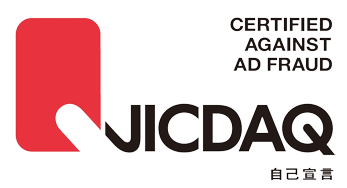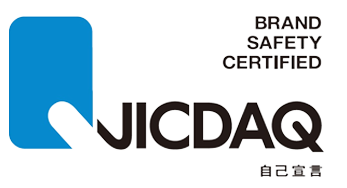
Q. Please tell us about your company’s background and business.
F@N Communications, Inc. was established in 1999 with this year being our 18th in the business.
We develop a variety of internet advertising services with our business split up into 2 large divisions – CPA and CPC type advertising services. CPA type advertising service deals mainly with “Affiliate advertising (A8net)” while CPC type of advertising service deals with “Ad network (nend) and DSP (nex8)”.
Each division has different billing systems and target customers but what all services have in common is “Providing an advertising system that allows both sides to become wi-win based on the advertisers’ performance goals and platform provider’s earnings goals”.
Amongst those, we adopted Spider AF in our nend service that is aimed at ad networks for smartphones.
Currently there is about 700,000 smartphone sites and applications on nend, making it Japan’s No.1 smartphone display advertising service by scale.
Q. Please tell us about the problems/issues you were having before you introduced Spider AF.
There were 3 issues we were having.
The 1st one was “Fraudulent media was beginning to increase from the 2nd half of last year, with this year seeing a dramatic increase”.
The 2nd was “Fraud patterns this year have gotten diverse”
And the 3rd reason was “We had fraud detection in place but it was getting personalized and taking up a lot of man-hours”
Q. What kind of expectations did you have for Spider AF prior to the introduction?
Since Phybbit is originally a company that used data science as a strength, we could use data to “automatically detect and identify fraudulent media”.
We were honestly very concerned in the beginning. We’ve used data analysis from outside company’s a number of times already but no matter how impressive their technology was, they had difficulties understanding how our company’s business worked… For our company, we have an idea of creating a service that doesn’t compromise on even the smallest of details. So up until now, there eventually ended up being a lot of cases where we would do everything.
Q. Among the services provided in Spider AF, what was the deciding factor that caught your attention and made you want to go with Spider AF?
The deciding factor in the beginning was the people. I think there are a lot of company’s out there with strong technological capabilities, but Phybbit was kind and there were both sales and engineers on their staff that listened to our concerns.
Before introducing Spider AF, we would usually show our fraud detection and identification to the people in front of us but, particularly with the engineer, Eurico, we were surprised by the amount of questions she was asking like “Why did you look there?” or “What kind of value is that?”.
Then when the trial version came out, we were shocked!
Even still, I thought we had accumulated a considerable amount of know-how on fraud and identified fraud through multiple preparations, but we were surprised when we accomplished all of this with the Plus α function(content analysis, credibility of domain information, etc.) including the automated work that we were doing.

Q. When you were introducing Spider AF, did you have any difficulties/concerns? How was it solved?
What we were concerned about was what we talked about earlier – understanding our business.
Then, fraud patterns as well as new ones kept frequently popping up – dealing with that flexibly was a concern. If we’re talking about difficulties, I thought it would have been good to more properly compile a database of our work.
I think that the important thing after analyzing data is, compiling up the step by step work into a database, and then putting together the correct algorithm.
Q. What was it actually like when you gave Spider AF a try? Did it solve any of the problems you were having before?
The results were huge. It shortened the period for identifying fraud into ⅕ of what the original time was, and it’s been extremely helpful in finding new fraud media.
The accuracy of the detection logic is also a good feature, but I think that how all of the info I want to confirm is gathered on the dashboard on one easy to understand page is what’s helped shorten the amount of time for tasks.
Together with this, coupled with the detection and identification flow that we’ve set up for finding new fraud patterns, we’ve accumulated a lot of know-how from all of this.
Q. We would like to ask you about the support you received before and after introducing Spider AF. How was Phybbit’s support (engineers/sales)?
In any case, the support has been fast and helpful. Usually we’ve been communicating on Slack and the responses and correspondence has been fast.
Whenever we find a new fraud pattern with a large impact and say that we would like to have a discussion asap, we’ve been glad that they take the time to answer us immediately.
Q. If there was one thing you could tell those thinking of introducing Spider AF/companies who are considering Spider AF, what would it be?
We introduced Spider AF as a provider of ad networks that does fraud detection, but I think that this is a topic that affects not only advertising agents, but also advertisers, platform providers, and all layers.
In order to protect advertisers precious budgets and protect the credibility of the platform provider’s impressions, I think it is important to use the respective data obtained and tackle the problems.
When you do that, Spider AF offers not only the quality of the service itself but also the logic suited for each service. Because of that, I can recommend this product to any operators that provide internet services.
Q. Finally, could you tell us about your company’s thoughts on ad fraud and how you will tackle the problem of ad fraud in the future?
Because we are developing an advertising platform where advertisers and platform providers can feel safe to use, from now and into the future, we will be heavily cracking down on fraud. As I mentioned at the beginning, there is a rapid increase in fraud this year, and I think it still accounts for about 1% to 3% in Japan, but there are also sources saying that fraud accounts for 20% of all activity globally. Looking at recent circumstances, I think that even in Japan there is the possibility that it will increase that much.
In addition, I think that we can not eliminate the fraud itself even if only we are taking measures, so I think that it would be better if we could take the initiative to involve the whole industry more. If all ad agencies can use Spider AF to create a system that allows them to share illegal media and users, it may be possible for Japan alone to eliminate fraudulent ad transactions worldwide.









.png)
%20(1).png)
.png)





